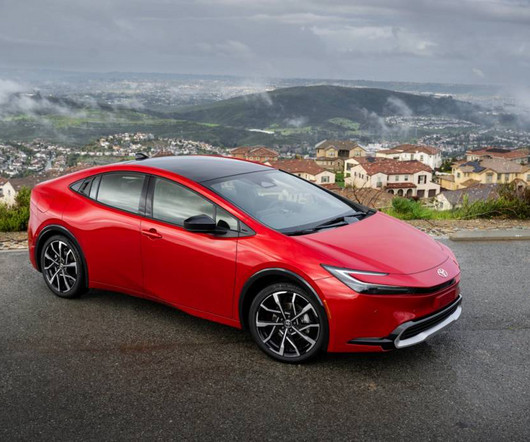Navigant forecasts global road transportation energy consumption to increase 25% by 2035; 84% from conventional fuels
Green Car Congress
JULY 28, 2014
In a new report ( Transportation Forecast: Global Fuel Consumption ), Navigant Research forecasts total road transportation energy consumption will grow from 81.1 of global consumption in 2014 to more than 16.4% of global road transportation sector consumption by 2035. quadrillion Btu in 2014 to 101.7





















Let's personalize your content